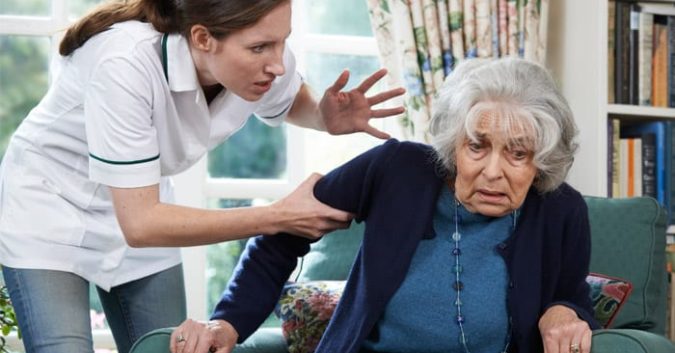For nursing home complaints to be on the rise is upsetting in and of itself, but for them to also increase in severity is nearly incomprehensible.
Nevertheless, these facts were both verified in a recent Office of the Inspector General report, which analyzes state investigations into Medicare/Medicaid-certified nursing homes. According to the report, the rate of complaints in nursing homes was up at least 37 percent between 2011 and 2015. Worse, more than half of complaints were classed “immediate jeopardy” or “high priority,” the 2 most serious levels of cases.
This report comes only a little more than a year after the U.S. House of Representatives revealed statistics showing elder abuse occurrences in 1 out of every 3 nursing homes. Clearly, this destructive pattern isn’t letting up – but why not?
States Sitting on Hundreds of Life-Threatening Cases
OIG looked at 2 key aspects of nursing home abuse across the U.S.: the rate of abuse cases themselves, and how states respond to them.
While complaints increased in those 4 years, the number of nursing home residents actually dropped. This pushed the average rate per 1,000 residents up one-third from 32.7 in 2011 to 44.9 in 2015. In some states, however, the increase was by as much as 50 percent. Washington came top at 109 complaints per 1,000 residents.
On average, 59 percent of complaints earned high-severity status – those considered to put residents’ lives in immediate jeopardy, or complaints alleging injury or harm serious enough to prioritize – up from 55 percent in 2011.
If considered high priority, complaints should be investigated onsite within 10 days by federal law. The immediate jeopardy deadline is 2 days. That’s where things get even worse: OIG found that states weren’t adhering to these time frames. Of 5,341 immediate jeopardy complaints, for example, 764 were not investigated within 2 days. Eighty-five percent of these violations occurred in only 2 states: Georgia and Tennessee.
What Exactly Is Happening in Our Nursing Homes?
Nursing home abuse, also referred to as elder abuse, is a very real but underreported concern. Proven increases in prevalence and severity reveal elder abuse to be far too common nationwide – but that doesn’t include abuse cases kept secret and away from scrutiny by nursing homes.
Elder abuse can take on many unspeakable forms. Usually at the hands of nursing home staff, whether by deliberate action and negligence or omissions and lapses in standards, these include:
- Physical abuse
- Neglect
- Emotional abuse
- Sexual abuse
- Financial exploitation
Any of these can merit immediate jeopardy or high-priority classification if serious enough to cause physical or emotional injury, harm, permanent impairment, or death. And when such an event occurs, the resident can only hope that witnesses or perpetrators come forward if they are unable to do so themselves. Sadly, without substantiation, there is little anyone can do.
Why Can’t This Be Stopped?
OIG describes states’ timely nursing home complaint processes as “a critical safeguard to protect vulnerable residents of nursing homes,” upon which residents and their families rely for elders’ health, safety, and basic rights.
When the system fails, residents are put in serious and even life-threatening danger. So why can’t states do something as simple as investigate complaints on time? This at least highlights room for improvement, the report noted. Centers for Medicare and Medicaid Services (CMS) is now working with Tennessee, Georgia, and other problem states trailing enormous backlogs of complaints, apparently due to insufficient or high turnover in staff.
Given that prevention is always better than intervention, a more urgent question is this: Why are nursing home owners allowing the problem to go this far? Staffing shortage – proven to be a major factor in abuse prevalence – is up to the owners to fix. However, they remain unwilling to fork out on quality staff, preferring to line their own pockets. As a result, the OIG report found, abuse cases most commonly pertained to low-quality care and treatment. But will the health department intervene?
“CMS must remain vigilant and assist the states that are falling short in meeting timeframes for investigations of complaints,” the report stated. “OIG will continue to monitor the oversight of nursing homes and will initiate additional reviews as necessary.”
